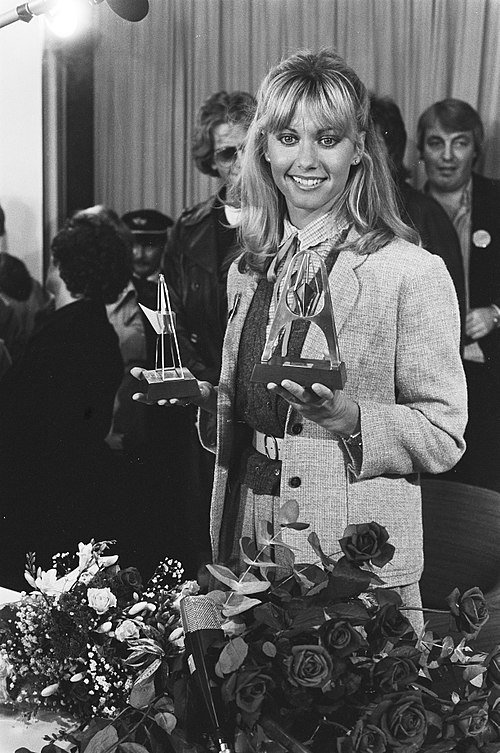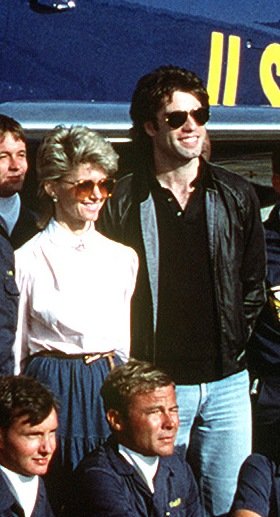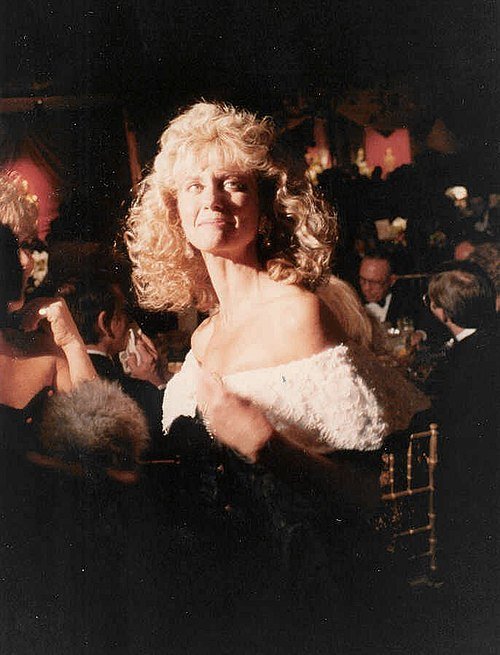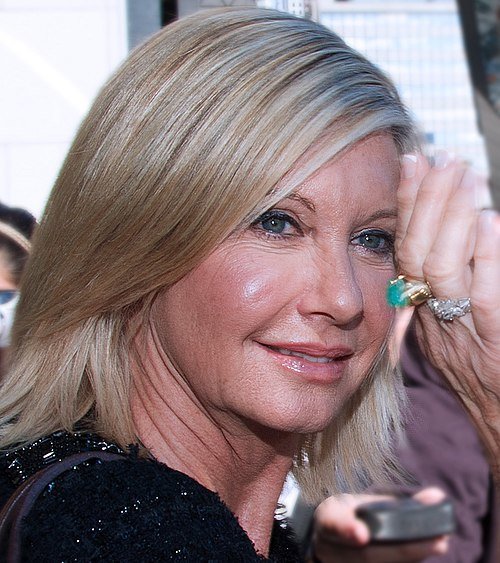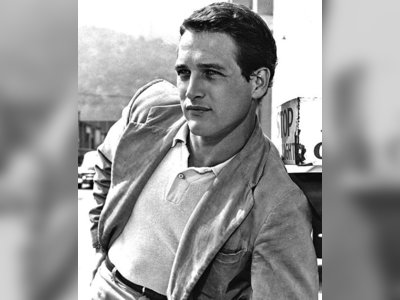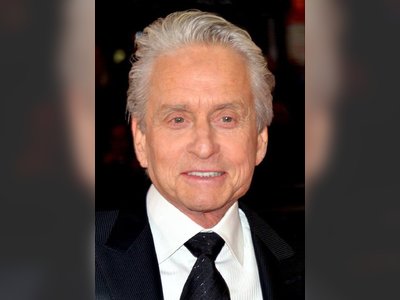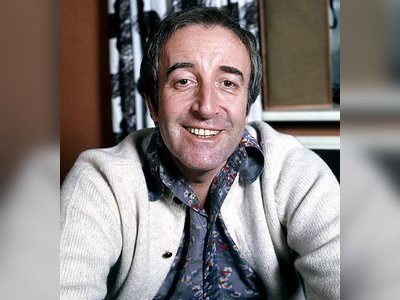Olivia Newton-John: A Journey Through the Life and Career of a British-Australian Icon
Olivia Newton-John, born on September 26, 1948, is a multi-talented British-Australian artist, actress, and social activist with Jewish heritage. Throughout her illustrious career, she has achieved numerous accolades, including four Grammy Awards and a Golden Globe nomination. Beyond her entertainment career, she's been a prominent advocate for environmental causes, breast cancer awareness, and entrepreneurship.
Childhood and Early Life
Olivia Newton-John was born in Cambridge, England. Her mother, Irene Born, was the first-born daughter of physicist Max Born, who won the Nobel Prize in Physics in 1954. Max Born, a Jewish scientist, fled Nazi Germany in 1933 with his wife, who was also of Jewish descent, to escape anti-Semitic persecution.
Olivia's father, Brinley Newton-John, was a Welsh-born officer in the British MI5 intelligence agency, known for his involvement in the Enigma code-breaking project and apprehending Rudolf Hess after his parachute landing in Scotland in May 1941.
Olivia had older siblings, and after World War II, her father became a professor of German at the University of Newcastle in New South Wales, Australia. In 1954, when Olivia was just five years old, her family moved to Melbourne, Australia, where her father took up a position as the headmaster of Ormond College at the University of Melbourne, a role he held until 1958.
Early Career
At the age of 15, Olivia Newton-John formed a girl group called the Soul Four with her friends. Soon after, she began making appearances on various television programs in Australia, including "The Happy Show" on HSV-7 and radio shows.
She also participated in the talent competition "Sing, Sing, Sing" hosted by Johnny O'Keefe, where she performed songs like "Anyone Who Had a Heart" and "Everything's Coming Up Roses." She won the competition and was awarded a trip to England. Initially hesitant to take up the prize, she was encouraged by her mother to travel and broaden her horizons.
Upon returning to Australia, Olivia Newton-John appeared on the "Go Show," where she met future close friends Pat Carroll and John Farrar. Shortly afterward, she returned to England with her mother. For a while, she performed with Pat Carroll, who had also moved to England, in nightclubs across Europe.
In 1966, after Pat Carroll's visa expired, forcing her to return to Australia, Olivia recorded her first single in England, "Till You Say You'll Be Mine." Later, she joined the group Tomorrow, formed by American producer Don Kirshner. The band recorded an album and appeared in a musical but disbanded shortly thereafter.
Newton-John released her debut album, "If Not For You," in 1971. The title track, written by Bob Dylan, became her first international hit, reaching #25 on the Billboard chart and topping the Adult Contemporary chart. Her next single, "Banks of the Ohio," reached the top ten in the UK and Australia but did not perform well in the United States.
Olivia Newton-John was named Best British Female Artist for two consecutive years by "Record Mirror" magazine. She made frequent appearances on Cliff Richard's weekly television show and starred alongside him in the TV film "The Case." In the United States, her career faced some challenges until the release of her song "Let Me Be There" in 1973, which reached #6 on the Billboard Hot 100, #7 on the Country chart, and #3 on the Adult Contemporary chart. She won a Grammy Award for Best Female Country Vocal Performance for this song. Following its success, her album "Let Me Be There" also topped the Country chart for two weeks.
In 1974, Olivia Newton-John moved from PYE Records to EMI and released her third album, "Long Live Love." That year, she represented the UK in the Eurovision Song Contest with the title track from the album, which was chosen by the British public.
She finished fourth, and the group ABBA won with "Waterloo." The success of "Let Me Be There" in the country charts led her to release the same album in the United States with additional country songs under the title "If You Love Me, Let Me Know." The title track reached #5 on the Hot 100, #2 on the Country chart, and #2 on the Adult Contemporary chart.
Her next single from the album, a ballad called "I Honestly Love You," became her signature song, topping the Billboard Hot 100 for two consecutive weeks and the Adult Contemporary chart for three weeks. Following the album's success, Olivia Newton-John won two more Grammy Awards for Record of the Year and Best Pop Female Vocalist. The album itself reached the top of both the pop and country charts.
Olivia Newton-John's success in the country music scene garnered some criticism from music critics who believed that a foreign artist performing country songs with a pop twist didn't truly belong to the country genre.
However, she not only won Grammy Awards but was also named Best Female Country Artist in 1974 by the Country Music Association, beating out well-known country singers like Dolly Parton, Tanya Tucker, Loretta Lynn, Anne Murray, and others. The controversy surrounding her victory led to the formation of a rival organization of country artists. Nevertheless, Olivia Newton-John gained recognition and acceptance within the country music community.
In 1976, she recorded her album "Don't Stop Believin'" at the American Sound Studio in Nashville, Tennessee, one of the epicenters of American country music.
Inspired by Australian singer Helen Reddy, Olivia Newton-John left England and moved to the United States. Her next album, "Have You Never Been Mellow," topped both the pop and country charts in the United States. Two singles from the album, the title track (reached #1 on the Hot 100, #3 on the Country chart, and #1 on the Adult Contemporary chart) and "Please Mr. Please" (reached #3 on the Hot 100, #5 on the Country chart, and #1 on the Adult Contemporary chart), received significant radio play.
Her career took a slight dip with the release of her album "Clearly Love." Although the album produced five singles that entered the Billboard Hot 100, the first single from the album, "Something Better To Do," reached only #13 on the Hot 100, #19 on the Country chart, and #1 on the Adult Contemporary chart. Despite her relative success in the country charts and earning gold records, she did not crack the top ten of the Hot 100 until 1978.
Olivia Newton-John achieved remarkable success in the Adult Contemporary chart in the United States. She scored ten chart-topping singles on the AC chart, seven of them consecutively, between 1974 and 1976. She also had seven number-one hits in the country chart until 1976. However, in 1977, her success waned in these charts.
Her album "Making a Good Thing Better" peaked at #34 overall and #13 on the country chart. The album's first single, "Something Better To Do," reached only #13 on the Hot 100, #19 on the Country chart, and #1 on the AC chart. However, despite her slightly declining chart performance, Olivia Newton-John remained a beloved and successful artist in the United States.
Rising Stardom and Breakthrough
In 1978, Olivia Newton-John starred in the movie "Grease," which catapulted her to international superstardom. In this musical film adaptation of the 1971 stage musical of the same name, she played the role of Sandy Olsson, opposite John Travolta's Danny Zuko. The film was a massive success, becoming one of the highest-grossing musicals of all time. The soundtrack, featuring Olivia's hit songs such as "Hopelessly Devoted to You" and "You're the One That I Want" (a duet with John Travolta), topped the charts and sold over 28 million copies worldwide. "You're the One That I Want" became one of the best-selling singles in history.
The film's success cemented Olivia's status as a pop icon, and she received her first Golden Globe Award nomination for her performance in "Grease." The movie's soundtrack earned her two more Grammy nominations. In 1979, she won the Grammy Award for Best Female Pop Vocal Performance for "Totally Hot." Olivia's transition from country and adult contemporary to pop was complete, and she continued to release successful albums in the pop genre.
Further Musical Success and Acting Career
Following her success in "Grease," Olivia Newton-John released a series of successful pop albums throughout the late 1970s and 1980s. Some of her notable albums during this period include "Totally Hot" (1978), "Physical" (1981), and "Soul Kiss" (1985). The title track of "Physical" became a massive hit, staying at the top of the Billboard Hot 100 for ten consecutive weeks and becoming one of her signature songs.
In addition to her music career, Olivia continued to act in films and television. Some of her notable film roles include starring in "Xanadu" (1980), "Two of a Kind" (1983), and "It's My Party" (1996). She also appeared in various television shows and made-for-TV movies.
Personal Life and Philanthropy
Olivia Newton-John's personal life has been marked by both triumph and adversity. She married Matt Lattanzi in 1984, and the couple had a daughter, Chloe Rose, in 1986. However, they divorced in 1995. In 2008, Olivia married John Easterling, an entrepreneur and natural health expert.
One of the most challenging periods in Olivia's life came when she was diagnosed with breast cancer in 1992. She underwent a partial mastectomy and received chemotherapy. She became an advocate for breast cancer awareness and established the Olivia Newton-John Cancer Wellness & Research Centre in Melbourne, Australia, which focuses on providing comprehensive cancer treatment and support.
Olivia's philanthropic efforts also extend to environmental causes. She is a strong supporter of environmental conservation and animal welfare organizations.
Later Career and Legacy
Throughout her career, Olivia Newton-John continued to release albums, perform in concerts, and make occasional film and television appearances. Her music legacy includes numerous hit songs and albums across various genres, making her one of the most successful and enduring artists of her generation.
In 2018, Olivia announced that she had been diagnosed with cancer for the third time, this time with a tumor at the base of her spine. She continued to be open about her health struggles and remained active in her philanthropic efforts.
Olivia Newton-John's influence on the music and entertainment industry is significant, and she has left an indelible mark on pop culture. Her ability to seamlessly transition between musical genres, her captivating performances, and her dedication to important social causes have endeared her to fans around the world, earning her a lasting legacy as a beloved and iconic artist.
- אוליביה ניוטון-ג'וןhe.wikipedia.org


